Zimbabwe
A smiling President Robert Mugabe was pictured shaking hands with Zimbabwe’s military chief a day after the army seized power, throwing confusion over predictions that the 93-year-old’s nearly four-decade rule had come to an end.
Mugabe unexpectedly drove from his “Blue Roof” Harare compound in Harare, where he had been confined since troops took to the streets, to State House, where official media pictured him meeting military chief Constantino Chiwenga and South African ministers sent to mediate the crisis.
The official Herald newspaper carried no reports of the outcome of the meeting, leaving Zimbabwe’s 13 million people in the dark as to what was happening as night fell on Thursday.
Mugabe is insisting he remains Zimbabwe’s only legitimate ruler and is refusing to quit, but pressure was mounting on the former guerrilla to accept offers of a graceful exit, sources said on Thursday.
Earlier, a political source who spoke to senior allies holed up in the compound with Mugabe and his wife Grace said he had no plans to resign voluntarily ahead of elections due next year.
“It’s a sort of stand-off, a stalemate,” the source said. “They are insisting the president must finish his term.”
The army’s takeover signalled the collapse in less than 36 hours of the security, intelligence and patronage networks that sustained Mugabe through 37 years in power and built him into the “Grand Old Man” of African politics.
A priest mediating between Mugabe and the generals, who seized power on Wednesday in what they called a targeted operation against “criminals” in Mugabe’s entourage, has made little headway, a senior political source told Reuters.
Opposition leader Morgan Tsvangirai called for Mugabe’s departure “in the interest of the people”. In a statement read to reporters, Tsvangirai pointedly referred to him as “Mr Robert Mugabe”, not president.
The army may want Mugabe, who has ruled Zimbabwe since independence in 1980, to go quietly and allow a smooth and bloodless transition to Emmerson Mnangagwa, the vice president Mugabe sacked last week triggering the political crisis.
The main goal of the generals is to prevent Mugabe from handing power to his wife Grace, 41 years his junior, who has built a following among the ruling party’s youth wing and appeared on the cusp of power after Mnangagwa was pushed out.
The last of Africa’s state founders still in power from the era of the struggle against European colonisation, Mugabe is still seen by many Africans as a liberation hero. But he is reviled in the West as a despot whose disastrous handling of the economy and willingness to resort to violence to maintain power pauperised one of Africa’s most promising states.
Once a regional bread-basket, Zimbabwe saw its economy collapse in the wake of the seizure of white-owned farms in the early 2000s, followed by runaway money-printing that catapaulted inflation to 500 billion percent in 2008.
Millions of Zimbabweans, from highly skilled bankers to semi-literate farmers, emigrated, mostly to neighbouring South Africa, where an estimated 3 million still live.
After briefly stabilising under a 2009-2013 power-sharing government, when Mugabe was forced to work with the opposition, the economy has once again cratered, with dollars scarce, inflation surging, imports running out and queues outside banks.
REUTERS



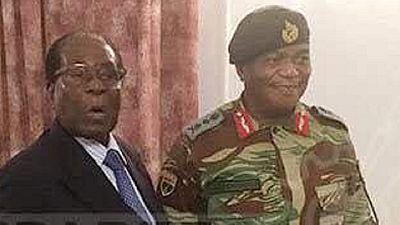


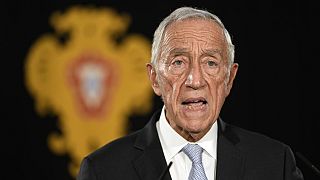
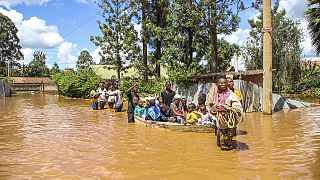

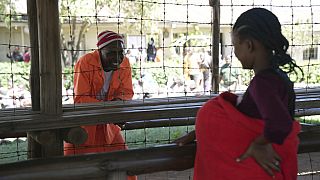
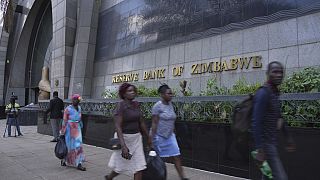

01:11
Kenya’s military chief dies in a helicopter crash, Nairobi declares three days of national mourning
01:11
Kenya's military chief and nine others die in helicopter crash
02:13
Vigilante groups protect communities in northern Nigeria
01:00
Israel army chief warns Iran after retaliatory attack
01:25
Zimbabwe unveils new currency as depreciation, inflation stoke turmoil